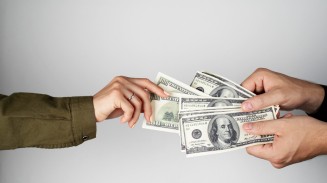In Dekoa, a town at a busy crossroads in the bloody heartland of Central African Republic, thousands of Christian residents squat in a churchyard under the gaze of U.N. peacekeepers, a short distance from their own homes.
A few hundred meters away on the other side of a muddy path, live about 100 Muslims - the last remnants of a community that fled northwards as sectarian violence engulfed the landlocked country over the past two years, creating a de facto partition.
Like the hundreds of thousands of displaced people in the former French colony, both sides fear attack by rival armed groups who roam the countryside and use Dekoa as a thoroughfare.
Two years after the majority Christian nation was rocked by a coup led by mostly Muslim Seleka rebels, triggering reprisals by the 'anti-balaka' militia, one of Africa's poorest countries remains deeply divided.
Despite the presence of a 10,500-strong U.N. peacekeeping force and French soldiers, the rival groups have defied attempts to disarm them and tit-for-tat attacks continue, especially in contested central areas like Dekoa.
The U.N. Security Council this week called for interim President Catherine Samba-Panza to hold delayed elections by year-end, saying "significant progress" has been made on voter registration.
But a wave of violence that convulsed the capital Bangui last month has raised fears the country is not ready. Critics say foreign powers are rushing to disentangle themselves from a messy conflict that has killed thousands and turned half a million people into refugees.
For many in Dekoa, a resurgence in violence this month brought back bitter memories of fighting last year in which more than 50 people were killed.
Placide Godi, a Christian, fled his home when dozens of Seleka fighters attacked his nearby village. Now he lives in St. Anne's mission amid tents made of waterproof sheets propped up with chairs and tree branches to keep out the heavy tropical rains.
"We absolutely want to return home," he said. "But we want peace, disarmament and security above all else."
"OPEN-AIR PRISON"
Despite the violence, officials in Dekoa say they have avoided the organizational difficulties that have plagued vote preparations in some parts of the sparsely populated country of nearly 5 million people.
"We finished the census two months ago," said Mbeti Gaza Yves, a deputy prefect for the town. "People are impatient to go out and vote."
But doubts remain over whether all citizens will have the same opportunity to do so. Residents of the Muslim enclave, mostly traders and cattle herders, say they are too afraid to venture out to the market for fear of anti-balaka attacks.
They live in virtual quarantine, relying on food deliveries from the World Food Programme.
"If somebody comes to sell us food here, the anti-balaka will attack them afterwards," says one Muslim man, who did not want to be named.
It is the same story in Bangui's last Muslim enclave, known as PK5, where about 1,000 Muslims are holed up in the Great Mosque. Residents feel abandoned by U.N. peacekeeping mission (MINUSCA) and compare their district to an open-air prison.
Amadou Roufai, councillor for the district, said violence erupted last month when a Muslim's corpse was found with the inscription "Happy Tabaski" carved into his chest, a reference to a religious holiday.
"At that point MINUSCA should have intervened to stop things sliding out of control but there was nobody," he said. "That allowed Muslims go out and kill and set things ablaze."
The government says subsequent clashes killed at least 77 people, many shot at point blank range or stabbed to death.
In a visit to PK5 this week, United Nations Under-Secretary General for Humanitarian Affairs Stephen O'Brien pledged 6 billion CFA francs ($10.14 million) in humanitarian aid after meeting with local authorities and religious leaders.
Despite the many challenges, many Muslims remain optimistic about the future, saying the election and a much-anticipated visit by Pope Francis in November can only improve their lives.
"The arrival of his holiness is a gift from God," said Mahmoud Riad, vice-president of the country's Islamic community. "The Muslim community is waiting for the pope with open arms."
Copyright Thomson Reuters. All rights reserved.
Get the Most Popular Lawyerherald Stories in a Weekly Newsletter





